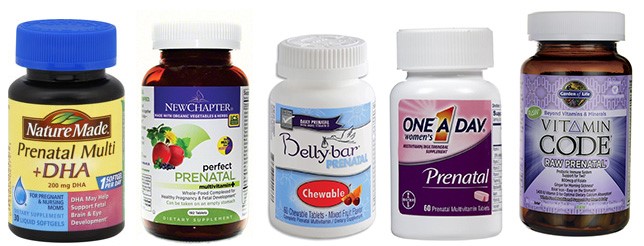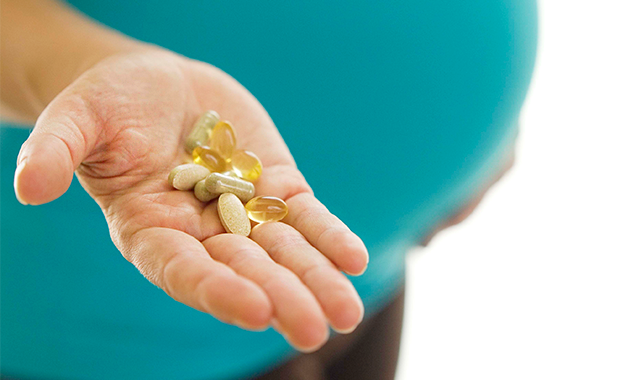It is very important to maintain optimal nutrition during pregnancy. Your baby needs enough minerals, vitamins and many other nutrients for a normal development, and you also need these to support your pregnancy. A balanced diet can provide you with good nutrition; however, it is far from enough, and you need to take prenatal vitamins. What will happen if you are not taking them?
What Happens If You Do Not Take Prenatal Vitamins?

Not taking prenatal vitamins may lead to vitamin and mineral deficiency which can cause serious consequences.
1. Folic Acid Deficiency
Folic acid, a type of vitamin B, can be found in leafy green vegetables. Deficiency of this vitamin can be one major cause of miscarriage, low birth weight, and some deformities such as cleft lip, neural tube defects and heart anomalies.
To avoid these complications, women should start taking 0.6 mg of folate as early as one month before planning on conceiving. Taking 4 mg of folate a day if you did not take it before getting pregnant.
2. Calcium Deficiency
Baby's bones and muscles cannot develop properly without calcium. The lack of this mineral is associated with the development of preeclampsia, a dangerous condition that could be fatal for both of the mother and the baby. It may also cause pregnancy-triggered hypertension in mothers, and babies who didn't receive enough calcium have a bigger risk of developing osteoporosis later in life.
Calcium intake during pregnancy should range from 1,000 mg to 1,300 mg a day.
3. Iron Deficiency
Not taking prenatal vitamins can cause iron deficiency, leading to fetal and maternal anemia. In this condition, the risk of premature labor and low birth-weight drastically increases. This condition can also cause delivery complications that require blood transfusions.
This is why pregnant women are advised to take 30 mg of iron a day.
4. Vitamin A Deficiency
Vitamin A deficiency is common in undeveloped nations and is even believed to be one of the top causes of blindness in young babies. You should take prenatal vitamins and ensure a 5,000 international units' daily intake of vitamin A.
Note: In most cases, not taking prenatal vitamins before getting pregnant doesn't cause serious consequences. A lot of women haven't even taken any in the past and still ended up having healthy children. It's only important that you start consuming them the moment you discover you are pregnant.
More Frequently Asked Questions About Prenatal Vitamins

1. In Which Stage of My Pregnancy Should I Start Taking Prenatal Vitamins?
It’s advised you start 3 months before actually getting pregnant, as the egg begins to mature 3 months prior to its release. Defects of the neural tube occur in the first month of gestation, so even if you just suspect that you might be pregnant, don't wait for the doctor's appointment to get a prescription for a supplement. Instead, immediately start taking over-the-counter folate.
2. Are All Prenatal Vitamins the Same?
No. Even though the Food and Drug Administration regulates them all, they aren’t necessarily obligated to have the same ingredients. While some contain a little bit of everything, others don’t. Therefore, it's best you ask your doctor to suggest the one you need.
3. Is It Safe to Take Non-Prescription Prenatal Vitamins?
Non-prescription ones are perfectly safe as long as they have a USP seal. If you are having doubts about the safety of a certain supplement, bring the bottle to your doctor.
4. I've Discovered That Iodine Is Necessary. Is It Contained in Prenatal Supplements?
It is in some prenatal supplements. However, you can get your daily amount of iodine just from iodized salt alone. During pregnancy, you need 220 micrograms of this mineral a day. Considering that one-half teaspoon of salt has 190 micrograms of iodine, consuming enough of it through food isn't hard to achieve.
5. Am I Required to Take Supplements If I Am a Vegetarian?
Vegetarians oftentimes lack iron, zinc, vitamin B12 and omega-3 fatty acids. If you happen to be one, search for supplements that are rich in these substances.
6. Are There Any Side Effects to Taking Prenatal Vitamins?
Yes. In fact, prenatal vitamins are associated with nausea. When compared to the possible complications of not taking prenatal vitamins, nausea is not a big deal, and it can be eased by:
- Taking your supplements with food and prior to going to bed
- Consulting your doctor about changing the prenatal vitamin you are currently taking
- Talking to your doctor about using chewable supplements which aren't so harsh on the stomach
Constipation can be caused by iron contained in your vitamins. To help yourself feel better:
- Make sure you are getting enough of fiber from sources such as fruits and vegetables.
- Drink enough water.
7. Should I Take Any More Vitamins If I Am Already Taking Prenatal Ones?
- It is unnecessary to take extra vitamins as prenatal ones already contain all nutrients that you and your baby need. Also, overdosing on vitamins can cause various defects and be harmful to the fetus.
- In case you were taking any supplements prior to getting pregnant, stop taking them unless approved by your doctor.
- However, you might want to ask your doctor about taking extra supplements of omega-3 fatty acids which aid the development of the baby's brain.
